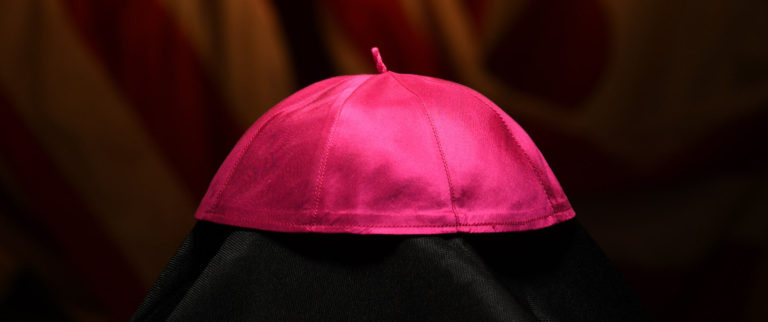Although the U.S. bishops did not vote in November on proposals that would have created procedures for handling allegations against bishops of misconduct or improper supervision, bishops in the Archdiocese of Baltimore will be subject to a policy approved in December by the archdiocese’s Independent Review Board.
At the bishops’ request, the review board, which assists the Archdiocese of Baltimore with child protection efforts, created a Bishop Reporting Initiative to ensure proper reporting of allegations against bishops, believed to be the first of its kind in the nation.
Covered under the initiative are procedures to address potential allegations that a bishop of the archdiocese:
- engaged in child sexual abuse or other inappropriate sexual behavior with a minor;
- engaged in sexual harassment or misconduct toward an adult; or
- engaged in activities that constitute seriously negligent supervision or an improper cover-up relating to alleged child sexual abuse by others within the archdiocese.
Although the Charter for the Protection of Children and Young People, adopted by the U.S. bishops in 2002, mentioned only priests and deacons, the archdiocesan policy created after the adoption of it was always presumed to include bishops. In fact, when Archbishop William E. Lori was assigned to Baltimore in 2012, and when Bishop Mark E. Brennan came to the archdiocese in 2017, each underwent fingerprinting and a background check, as any new employee would. In new archdiocesan policies that went into effect Nov. 1, the bishops are expressly included.
This new initiative from the review board provides a method to ensure proper reporting of allegations against a bishop, at first, to two members of the board who are both retired judges, Joseph F. Murphy and Ellen M. Heller. Neither is employed by, is a volunteer or is in any other position within the archdiocese.
Those who staff the current archdiocesan reporting hotlines – in the Office of Child and Youth Protection and via EthicsPoint, a portal for reporting unethical or illegal activity – will be instructed that allegation types mentioned above must be forwarded first to both Murphy and Heller and not to others within the Archdiocese of Baltimore.
Heller and Murphy will ensure the matter is reported to appropriate criminal and civil authorities, if the allegation involves sexual abuse of a minor, or if the allegation involves inappropriate sexual behavior with an adult that may be criminal in nature.
The policy lays out those who need to be notified, as appropriate, including the full review board and the papal nuncio, since disciplining bishops is reserved to the Holy See. If the allegation is against an auxiliary of the archdiocese, the archbishop will be notified. If the allegation is against the archbishop, the senior suffragan bishop in the Province of Baltimore will be notified.
Heller told the Catholic Review the policy might be modified or superseded if the Vatican issues other policies regarding bishops after Pope Francis meets with the heads of national bishops’ conferences at the Vatican in February, or after the U.S. bishops meet again next June.
At a news briefing Jan. 15, Archbishop Lori said if the Vatican or the U.S. bishops create a policy regarding bishops, the archdiocese will use whichever standard is stricter. “This is not ever going to ratchet down; this is only going to ratchet up,” he said.
Heller said that ultimately it is important that the faithful and the general public “realize no one is exempt from a follow-up. No one is exempt from the policy. Everyone will be scrutinized at all levels of the hierarchy of the church.”
Deacon Bernard Nojadera, director of the Office of Child and Youth Protection at the U.S. Conference of Catholic Bishops, said he was aware of a proposal that would empower the nation’s metropolitan archbishops to examine accusations made against bishops in their regions, assisted by existing review boards. The new Baltimore policy has some of those elements.
Deacon Nojadera said in early December he had not heard of any other diocese “trying to make it a reality.”
The archdiocese’s Child and Youth Protection page and EthicsPoint materials have been updated to reflect the new information and processes.
To read the full text of the policy, click here.



